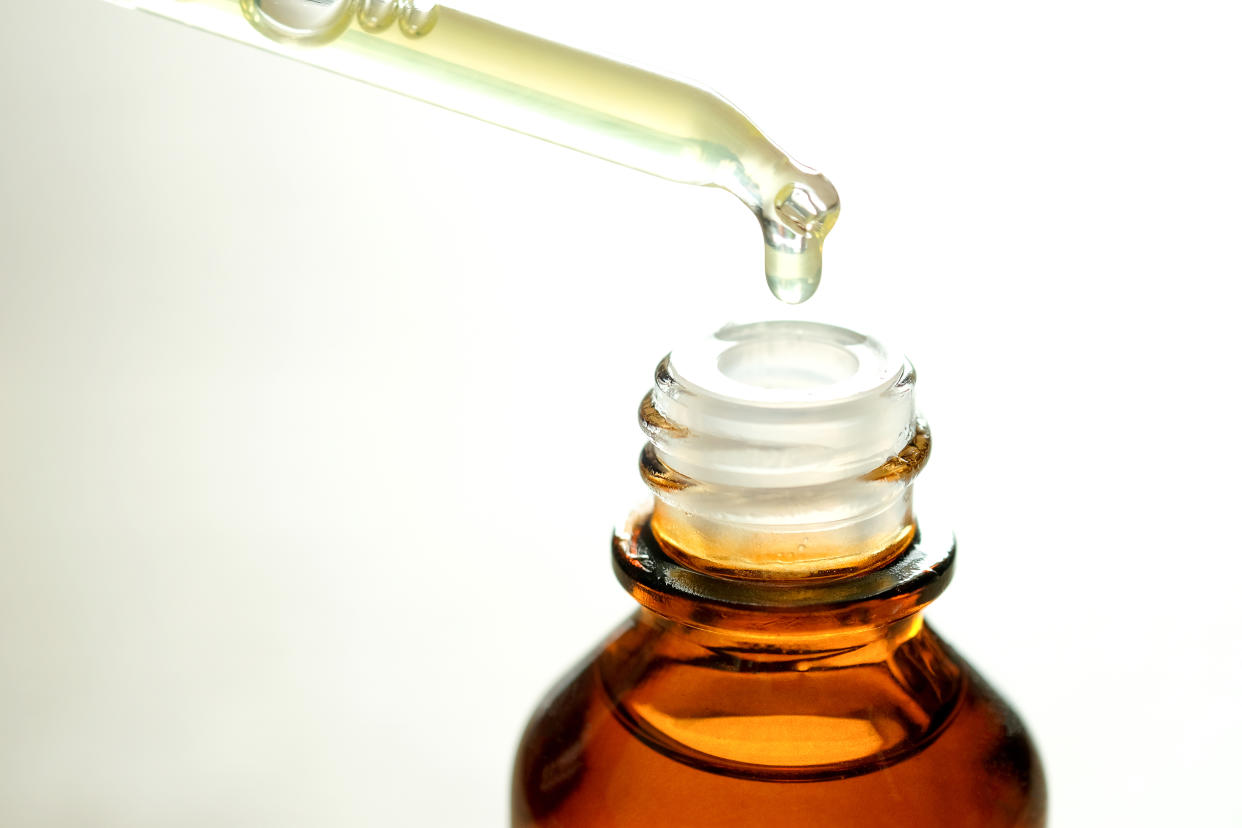CDC makes 'breakthrough' on vaping crisis, names vitamin E oil as potential culprit

As cases of vaping-related illnesses reach 2,051, the Centers for Disease Control and Prevention has announced a “breakthrough” in the search for a cause — the first identified toxicant: vitamin E acetate.
The news comes in a study released Friday in the Morbidity and Mortality Weekly Report, which analyzed fluid from the lungs of 29 patients with e-cigarette or vaping product use associated lung injury (EVALI) in 10 different states. While the majority of those analyzed tested positive for either THC (82 percent) or nicotine (61 percent), the only substance to be “universally detected” in every sample was vitamin E acetate.
“These new findings are significant because for the first time we have detected a potential toxin of concern,” Anne Schuchat, MD, principal deputy director of the CDC said on a call with reporters Friday morning. “These findings provide direct evidence of vitamin E acetate at the primary site of injury within the lungs and the samples reflect patients from states across the country to date.”
Related Video: Trump Says U.S. Will Raise Vaping Age Limit to 21
Schuchat was quick to point out that vitamin E acetate may just be one of many toxins fueling EVALI cases — 39 of which have proven fatal — but she noted that the health agency tested for many other substances, including plant oil, mineral oil, petroleum-based oil and MCT oil — to no avail. “No other potential toxins were detected in the testing conducted so far,” Schuchat said.
So what exactly is vitamin E acetate — and how concerned should you be?
Vitamin E itself is a hugely beneficial nutrient that impacts everything from reproduction to skin. Found in leafy vegetables, olive oil, nuts and some dairy, it’s safe to consume in food, as well as to take in supplement form. Vitamin E acetate (technically, Alpha-tocopheryl acetate) is a naturally derived supplement of vitamin E that’s most commonly used in skincare products — like face cream and serum. Full of antioxidants, its apparent benefits include fighting the effects of aging and sun damage, as well as providing protection from UV rays.
Although doctors have approved vitamin E for consumption and vitamin E acetate for use on skin, the CDC’s new report suggests that the substance can prove dangerous when inhaled. The CDC described it as a “known additive” that has been known to be used on the black market to “dilute” or thicken the liquid in e-cigarette or THC vaping products.
“Vitamin E acetate is enormously sticky,” James L. Pirkle, MD, director of the division of laboratory sciences at the CDC, said on the call Friday. “You can think of it to be just like honey and so when it went goes into the lung, it does hang around.” Schuchat added that while it’s clear that vitamin E acetate can “interfere with lung function,” the next step is to figure out exactly how.
Those diagnosed with EVALI often report symptoms that mimic pneumonia, such as severe cough, shortness of breath, difficulty breathing and fever — Schuchat says this “oily” substance lingering in the lungs could be to blame but stressed that “additional studies are needed” to establish a causal link.
The call also included a report from Jennifer Layden, MD, PhD, the chief medical officer and state epidemiologist at the Illinois Department of Public Health (IDPH), who shared the results of an online public survey being conducted by the state. The poll targets Illinois residents who currently using vaping products but have not gotten sick in an effort to find the differences that set patients with EVALI apart.
Over 4,000 adults took the survey, which found — among other things — that EVALI patients are two times more likely to report the exclusive use of THC-containing products and nine times more likely to obtain them from informal sources.
Read more from Yahoo Lifestyle:
National Prescription Drug Take Back Day will accept vapes, cartridges for the first time
Zantac is being recalled in the U.S. and Canada 'due to possible contamination'
Follow us on Instagram, Facebook and Twitter for nonstop inspiration delivered fresh to your feed, every day.

